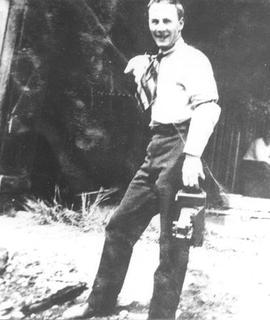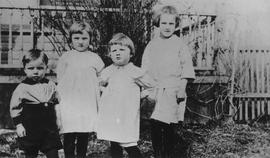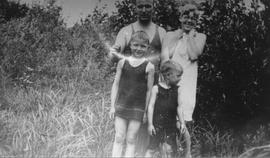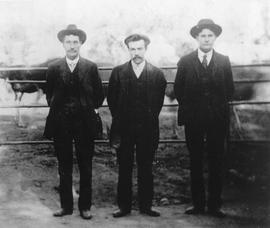Left to right: Mrs Kate Mills, Ozzie Rae, Olive Judd, and Minnie Rae on the Mackinnon Railway.
In 1910, a man by the name of Norton McKinnon came to the area to log by railway, laying track from the Mamquam River to the Northern Pemberton Railway line. Unfortunately, a company fire in 1913 by the Mamquam River resulted in the loss of McKinnon’s business, and he left Squamish soon after.
Despite this setback to one of the first logging pioneers, harvesting continued through the Squamish area with the company of Merrill and Ring. With a steam engine salvaged from Norton McKinnon’s company, Merrill and Ring continued laying railway track from what is now the log dump south of the Stawamus Reserve to Valleycliffe and across the Mamquam River.
























